Upcoming events from ISBE
Partnering to Deliver SME Growth: Developing HE as “Institutional Anchors” through Research-Led Business Support
Monday 2nd September 2013, University College London
The purpose of this second seminar within the ISBE SME Growth SIG series is to delve deeper into the ways in which a multi-disciplinary (public/private sector) approach to sustainable SME growth and performance can be fostered through a research led ‘institutional anchor’ role with UK HEIs.
Following on from the very successful first seminar (Researching Growth in SMEs: Application and Impacts) held in Manchester earlier this year this seminar will build on key issues explored regarding the research being carried out and its key strengths/weaknesses. One of the specific issues identifies at this seminar was the need to look in greater detail at the context specific support that could be provided to the business community through a combination of quantitative and qualitative research. Also how we can leverage out networks to assist such an approach.
During the second seminar, after Contributions from ERC and the Growth Accelerator, an example will be presented of a successful project within the South East that combines multi-methods and longitudinal research with direct business engagement and support. This will be followed by group sessions to reflect on how a broader model(s) for generating SME growth might be established and how we might best work together to support such a model?
To book your place or for further information visit https://www.eventsforce.net/isbe/38/home
Food, Fibre, Fuel: The Rise of the Sustainable Society ISBE Social & Sustainable Enterprise Network Special Interest Group Seminar Series
18th September 2013, Manchester Metropolitan University, Oxford Road, Manchester M15 6BH
This seminar brings together practitioners and academics to learn from each other, connect and shape co-interests. This is an interactive event, small pitches, breakouts and more….
Aims and Objectives
There are numerous opportunities and challenges in shaping a sustainable society. Perhaps the greatest challenge is to develop strong networks of cross and interdisciplinary partnerships where we can increase knowledge, showcase eco-entrepreneurship and reflect on practice and theory.
The aim of this seminar is to build a community of academic researchers and practitioners, who wish share experiences and ideas with people of similar interests – but from different backgrounds – with the implicit objective to connect, learn, and shape the sustainability, eco and social entrepreneur agendas, both in universities and in the wider community.
The legacy from this event will be in the networks and partnerships created, and the actions and co-production that people will take forward after this seminar.
This seminar is for:
- academics interested in eco/social entrepreneurship and sustainability from research or education
- academics who want to build real life eco/social entrepreneurial experience into their subjects and curricula
- students wishing to improve their understanding of eco/social entrepreneurs and sustainability
- local authority officers wishing to explore the relevance of eco/social enterprise social value and sustainability in their locality
- Social enterprises and voluntary groups wanting to discover how they can influence universities and how universities can better support their work
To book your place or for further information visit https://www.eventsforce.net/isbe/39/home
A Thinkspace on the Gendering of Entrepreneurship: New Theoretical and Empirical Insights
Friday 20th September 2013 (10:00-16:30), Manchester Metropolitan University Business School
How can gender theory be used to better understand entrepreneurship and to develop gender-sensitive enterprise policy and support? And how can our research on entrepreneurship inform understanding of different societies as gendered?
In this event, you will have a chance to think and comment about different forms of gender theory and how they inform our understanding of entrepreneurship by listening to – and discussing – papers to be published in a new special issue of the International Journal of Entrepreneurial Behaviour and Research (IJEBR) on ‘The Gendering of Entrepreneurship: Theoretical and Empirical Insights’.
At GEN’s first ‘Think-Space on Gender and Entrepreneurship’ in 2011, GEN committee members launched the call for papers for this special issue of IJEBR. We had a tremendous response to the call for papers and hope that this special issue represents significant progress in the development of our gender research community. We seek to use this event to share the papers and our Editorial reflections on the use of gender theory, what recent research tells us about entrepreneurship and society and the research agenda going forwards. We will encourage discussion and support researchers and practitioners to think about the future of their own work.
As GEN members have asked for more social time to network, we are also inviting you all to join us for dinner on the evening prior to our event.
Presentations include:
• Managing the business of everyday life: The roles of space and place in ‘mumpreneurship’ – Dr Carol Ekinsmyth
• Contextualising Black migrant women entrepreneurs’ work-life balance experiences – Dr Cynthia Forson
• Women doing their own thing: media representations of female entrepreneurship – Dr Doris Eikhof, Dr Juliette Summers and Professor Sara Carter
• Empowerment and entrepreneurship: a theoretical framework – Dr Haya Al Dajani and Professor Susan Marlow
• Editorial reflections on ‘The Gendering of Entrepreneurship’ – Dr Julia Rouse, Lorna Treanor and Dr Emma Fleck
To book your place or for further information visit https://www.eventsforce.net/isbe/37/home

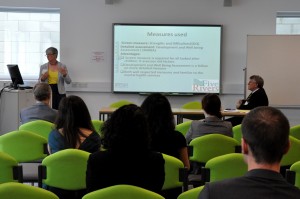
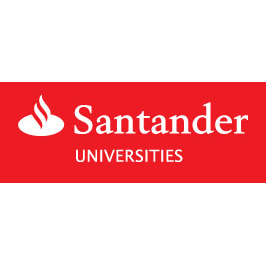
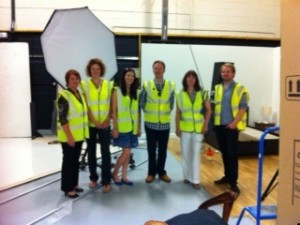

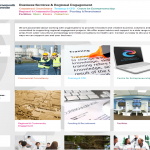
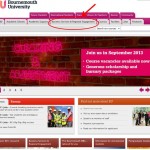






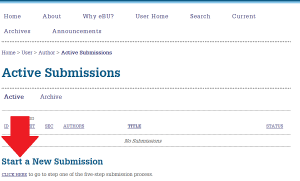












 REF Code of Practice consultation is open!
REF Code of Practice consultation is open! BU Leads AI-Driven Work Package in EU Horizon SUSHEAS Project
BU Leads AI-Driven Work Package in EU Horizon SUSHEAS Project Evidence Synthesis Centre open at Kathmandu University
Evidence Synthesis Centre open at Kathmandu University Expand Your Impact: Collaboration and Networking Workshops for Researchers
Expand Your Impact: Collaboration and Networking Workshops for Researchers ECR Funding Open Call: Research Culture & Community Grant – Apply now
ECR Funding Open Call: Research Culture & Community Grant – Apply now ECR Funding Open Call: Research Culture & Community Grant – Application Deadline Friday 12 December
ECR Funding Open Call: Research Culture & Community Grant – Application Deadline Friday 12 December MSCA Postdoctoral Fellowships 2025 Call
MSCA Postdoctoral Fellowships 2025 Call ERC Advanced Grant 2025 Webinar
ERC Advanced Grant 2025 Webinar Update on UKRO services
Update on UKRO services European research project exploring use of ‘virtual twins’ to better manage metabolic associated fatty liver disease
European research project exploring use of ‘virtual twins’ to better manage metabolic associated fatty liver disease